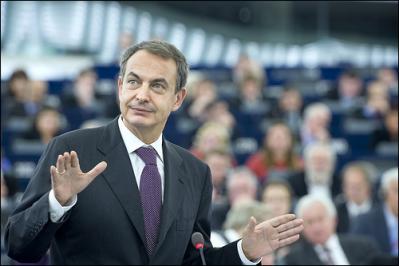
With the start of the New Year, Spain assumed the presidency of the European Union. During Spain’s six-month term the EU is set to implement a framework that includes measures on technical cooperation for enhanced capacity development and the new presidency has already thrown the spotlight on the role of southern partners.
In November, an External Relations Council Meeting endorsed the ‘Council Conclusions on an Operational Framework on Aid Effectiveness’, (see the November article on capacity4dev.eu). This framework provides a strategy for realising donor commitments made under the Accra Agenda for Action.
It now falls to the Spanish presidency to begin implementation of this framework, including issues relating to technical cooperation. Cooperation between southern partners, and how northern countries can play a supporting role, looks set to take centre stage.
“South-South cooperation, broadly understood as a wide range of forms of collaboration among developing countries, will be a principal theme during our Presidency,” said Félix Fernández-Shaw, coordinator for Development Cooperation in the Permanent Representation of Spain to the European Union.
Spain has less than three months before the High-Level Event on South-South Cooperation and Capacity for Development organised by the Colombian Government and other Southern actors. The March 2010 event in Bogota is set to prepare the groundwork ahead of a High-Level Meeting on Aid Effectiveness in Seoul in October 2011.
South-South cooperation re-emerged as a policy priority following the Accra Agenda for Action in 2008. This ended a period of some 30 years with only mixed results from South-South cooperation, after the adoption of the Buenos Aires Plan of Action for Promoting and Implementing Technical Cooperation among developing countries (TCDC).
The Spanish are keen to use their experiences in South America to inform the EU commitment to South-South cooperation and South-South-North cooperation, or Triangular Cooperation, when Northern donors provide the financial or technical support to the transfer of Southern know-how.
“We are planning to make an EU contribution to Bogota on how to address South-South and Triangular Cooperation based on evidence and good practice from our experiences in Latin America as well as from other EU member states and the European Commission,” Mr Fernández-Shaw said.
The Spanish presidency aims to conduct a first survey and mapping of how Member States work through triangular cooperation initiatives and how donors more generally work with South-South and Triangular Cooperation. The Spanish intend to use this information to shape the EU contribution in Colombia.
TO READ MORE ABOUT SPAIN’S TRACK RECORD IN TECHNICAL COOPERATION, CLICK ON THIS RELATED ARTICLE.
A recent report “Promotion of South-South cooperation for development: A thirty year perspective”, by the UN, is available here:
http://southsouthconference.org/wp-content/uploads/2009/11/A-64-504-E.p…
(1)
Log in with your EU Login account to post or comment on the platform.
James A. Hradsky Senior Co-ordinator for Capacity Development OECD/Paris
Viewed from the DAC, Spain's recent decision to follow through on implementation of the previous Presidency's well organised work on technical co-operation will help inspire the entire aid community to move in this direction. With a critical mass of 27 European nations working together around a common framework, we potentially can expect to see rapid progress in world-wide harmonisation of approach in this area where billions of aid dollars are invested annually.
One key step in this process will be the 24-26 meeting on "S-S Cooperation and Capacity Development" in Bogota. It should help raise the visibility of the constructive contribution made by Europe to international donor practice, but also should represent an excellent opportunity for greater Southern voice in shaping what has up to now been largely a donor led developmental issue.